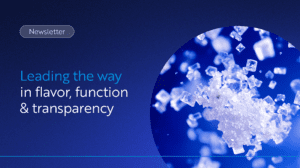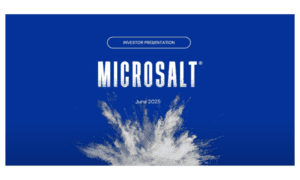Learn how lowering sodium intake may help migraine sufferers live a more pain-free life
Key Takeaways:
- Migraines are linked with hypertension, which is linked with excessive sodium intake
- Chronic migraine sufferers are at greater risk of developing high blood pressure
- Migraine attacks increase the amount of sodium in the brain
- A lower-sodium lifestyle could help reduce incidence and severity of migraine attacks
Almost 10% of adults globally suffer from migraines. While the true cause is unknown, several factors have been implicated. Recent research suggests a link between a high-sodium diet and migraine attacks, either as a causative or aggravating factor. Some evidence has also linked hypertension with migraines, meaning that dietary choices that limit the effects of hypertension may in turn ease the frequency and severity of migraines.
What is a migraine?
Migraine is a form of severe and recurrent headache characterized by throbbing pain that affects one side of the head and lasts for 4-72 hours. Migraines are associated with nausea and vomiting, visual disturbances (aura), and heightened sensitivity to light and sound. Migraines are three times more common in women than in men. Severe migraines can be debilitating and may even trigger depression and suicidal tendencies.
Causes of migraines
The exact cause of migraines is unknown. Genetics and other factors that cause changes in brain activity have been implicated. Hormonal, dietary, emotional, chemical, and environmental factors may also trigger migraine attacks.
Migraine treatment
Migraines are usually treated with a combination of pain medications, antiemetics, antihypertensives, antidepressants, psychotherapy, dietary changes, and even acupuncture.
Sodium intake, hypertension, and migraines: A complex relationship
While a high-sodium diet has been linked to the development of hypertension, the relationship between hypertension and migraines is complex. Preliminary evidence indicates that hypertension can make migraines worse, while at the same time, migraines can increase the severity of hypertension. Here’s a look at the relationship between sodium, hypertension, and migraines.
Sodium intake and hypertension
The link between sodium and hypertension has been long established: Excessive dietary sodium causes an increase in blood pressure. Fortunately, a corresponding reduction in sodium intake can lower high blood pressure. If hypertension is linked to migraines, then reducing dietary sodium might provide positive benefits for migraines as well.
Sodium intake and migraines
Scientists have long known that sodium levels in the brain spike during migraine attacks. A group of researchers recently explored the link between sodium and migraines, concluding that sodium crosses the blood-brain barrier during a migraine attack and causes neurons in the trigeminal nerve to fire randomly. This is interpreted as a severe headache or a migraine attack.
Hypertension and migraines
How to explain the relationship between migraines and hypertension? One theory suggests that the hereditary factors that predispose one to hypertension also predispose one to migraines.
A 2018 study published in the journal Cephalalgia found that women with a history of migraines were more likely to suffer from hypertension than women who did not. A 2020 study identified 12 genetic factors that are linked to both hypertension and migraine risk.
Research in this area is ongoing, with more definitive data being uncovered that could help migraine sufferers find the right personal numbers for their ideal sodium consumption goals.
5 ways to reduce migraine attacks
There are two dietary approaches that might help reduce the risk of a migraine attack. The first involves making changes in eating habits and patterns while the second involves eliminating foods that could trigger migraines.
1. Eat regular small meals but do not fast
Fasting can trigger a migraine attack, and so can overeating especially when “trigger foods” are involved. Try limiting portion sizes and avoiding potential trigger foods.
2. Hydrate frequently
Dehydration leads to headaches, which may trigger or aggravate a migraine attack. Always have a bottle of water nearby to ensure that you do not get dehydrated. Experts recommend drinking eight 8-oz. glasses of water per day.
3. Avoid alcoholic beverages
Beer and wine are known migraine triggers, so limit your intake of alcoholic beverages and make sure to adequately hydrate when you do drink.
4. Avoid processed and ferments foods
Processed and fermented foods contain high amounts of nitrites and monosodium glutamate (MSG). Both chemicals are migraine triggers and should be avoided or minimized.
5. Less sodium, please
Sure, salty foods are tasty, but overloading your system with sodium can lead to a host of health problems. As a migraine sufferer, you’re better off avoiding sodium at all costs. Your taste buds will adapt to the taste of less salt if you’re patient enough.
Reduce your sodium intake with MicroSalt®
Dietary sodium has a direct impact on migraines. High-sodium diets increase blood pressure, which in turn worsens migraines. So it’s best to keep your sodium intake in check if you suffer from this painful condition.
Luckily, MicroSalt® allows you to cut your sodium intake in half without losing out on flavor. These tiny crystals have the same taste as regular salt, but they’ve been specially engineered to deliver 50% less sodium, making them a healthier choice. The particles are 100 times smaller and have great adhesion properties, ensuring that you get a full burst of flavor instantly in every bite.
Contact MicroSalt® today
Our team strives to create a new food paradigm where great taste and good health go hand-in-hand. MicroSalt® is the proud global winner of the P&G Alumni Network’s 2021 Star Entrepreneur Award, and we’re here to help make low-sodium, healthy eating – and healthy living – a reality. Simply contact us via our message page, connect with one of our international offices, or call 1-877-825-0655 to learn more.




